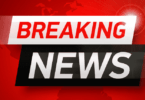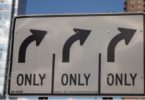Narendra Modi (Narendra Damodardas Modi) win 2019 General Election again on 23th May 2019 and will continue as Prime Minister of India. Here is the list of all Prime Ministers of India since 1947 for General Knowledge.
List of Prime Ministers of India:
1. Jawaharlal Nehru
Period: August 15, 1947 to May 27, 1964
Political Party: Indian National Congress
Elected From: Phulpur, Uttar Pradesh
2. Gulzarilal Nanda
Period: May 27, 1964 – June 9, 1964
Political Party: Indian National Congress
Elected From: Sabarkantha, Gujarat
India Prime Minister fact: Gulzari Lal Nanda become Acting Prime Minister for 13 days in 1964 after death of Jawaharlal Nehru and he again become Acting Prime Minister for 13 days in 1966 after death of Lal Bahadur Shastri.
Related: List of all Presidents of India
3. Lal Bahadur Shastri
Period: June 9, 1964 – January 11, 1966
Political Party: Indian National Congress
Elected From: Allahabad, Uttar Pradesh
4. Gulzarilal Nanda
Period: January 11, 1966 – January 24, 1966
Political Party: Indian National Congress
Elected From: Sabarkantha, Gujarat
5. Indira Gandhi
Period: January 24, 1966 – March 24, 1977
Political Party: Indian National Congress
Elected From: Rae Bareli, Uttar Pradesh
Related: List of All USA President
6. Morarji Desai
Period: March 24, 1977 – July 28, 1979
Political Party: Janata Party
Elected From: Surat, Gujarat
7. Ch. Charan Singh
Period: July 28, 1979 – January 14, 1980
Political Party: Janata Party (Secular)
Elected From: Baghpat, Uttar Pradesh
Related: RTO learning licence test questions
8. Indira Gandhi
Period: January 14, 1980 – October 31, 1984
Political Party: Indian National Congress
Elected From: Medak, Telangana
9. Rajiv Gandhi
Period: October 31, 1984 – December 2, 1989
Political Party: Indian National Congress
Elected From: Amethi, Uttar Pradesh
10. VP Singh
Period: December 2, 1989 – November 10, 1990
Political Party: Janata Dal (National Front)
Elected From: Fatehpur, Uttar Pradesh
Related: Hinduism quiz
11. Chandra Shekhar
Period: November 10, 1990 – June 21, 1991
Political Party: Samajwadi Janata Party
Elected From: Ballia, Uttar Pradesh
12. PV Narasimha Rao
Period: June 21, 1991- May 16, 1996
Political Party: Indian National Congress
Elected From: Nandyal, Andhra Pradesh
13. AB Vajpayee
Period: May 16, 1996 – June 1, 1996
Political Party: Bharatiya Janata Party
Elected From: Lucknow, Uttar Pradesh
Related: quiz on cricket with answers
14. HD Deve Gowda
Period: June 1, 1996 – April 21, 1997
Political Party: Janata Dal (United Front)
Elected From: Rajya Sabha MP (Karnataka)
15. IK Gujral
Period: April 21, 1997 – March 19, 1998
Political Party: Janata Dal (United Front)
Elected From: Rajya Sabha MP (Bihar)
16. Atal Bihari Vajpayee
Period: March 19, 1998 – May 22, 2004
Political Party: Bharatiya Janata Party
Elected From: Lucknow, Uttar Pradesh
17. Manmohan Singh
Period: May 22, 2004 – May 26, 2014
Political Party: Indian National Congress
Elected From: Rajya Sabha MP (Assam)
18. Narendra Modi
Period: 26 May 2014 – Till Date
Political Party: Bharatiya Janata Party
Elected From: Varanasi, Uttar Pradesh
Trivia Quiz on Prime minister of india
Ques. Which one of the following Prime Ministers of India has not presented the budget?
(a) Jawaharlal Nehru
(b) Morarji Desai
(c) Indira Gandhi
(d) All had presented the budget
All Prime ministers of India since 1947 Infographic:
THE PRIME MINISTER
The Prime Minister of India heads the council of ministers. He is the leader of the party that enjoys a majority in the Lok Sabha. He is appointed by the President.
Tenure: Five years, and holds the office with the consent of the President till a new Lok Sabha is formed.
Resignation : If the government is defeated in the Lok Sabha (not in Rajya Sabha), the cabinet as well as the Prime Minister have to resign.
Related: Official Prime Minister’s Website
UNION COUNCIL OF MINISTERS
The President appoints such person as Prime Minister whose leadership in the House (Lok Sabha) is explicitly recognised. The other Ministers are appointed by the President on the advice of the Prime Minister and thus the Union Council of Ministers is formed to aid and advise the President in the exercise of his functions. The Prime Minister is a link between the President and the Cabinet. The term ordinarily is for 5 years.
ELIGIBILITY FOR PRIME MINISTER
A Prime Minister must be:
(i). a citizen of India.
(ii). should be a member of the Lok Sabha or Rajya Sabha. If a person elected prime minister is neither a member of the Lok Sabha nor Rajya Sabha, then he must become a member of the Lok Sabha or Rajya Sabha within six months.
(iii). above 25 years of age (seat in the Lok Sabha) or above 30 years of age (seat in the Rajya Sabha).
A person shall not be eligible for election as Prime Minister if he holds any office of profit under the Government of India or the Government of any State or under any local or other authority subject to the control of any of the said Governments.
Ques. The Prime Minister of India, at the time of his/her appointment
(a) need not necessarily be a member of one of the Houses of the Parliament but must become a member of one of the Houses within six months
(b) need not necessarily be a member of one of the Houses of the Parliament but must become a member of the Lok Sabha within six months
(c) must be a member of one of the Houses of the Parliament
(d) must be a member of the Lok Sabha
























If you can lie you can become prime minister
Very informative post. This is very helpful for General Knowledge as well absolutely for competitive exams.
Ghar todne ki wajah bata rahi nahi hai Hamare ghar today